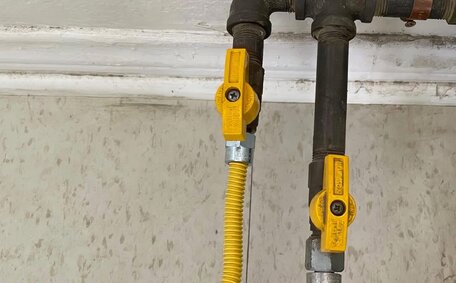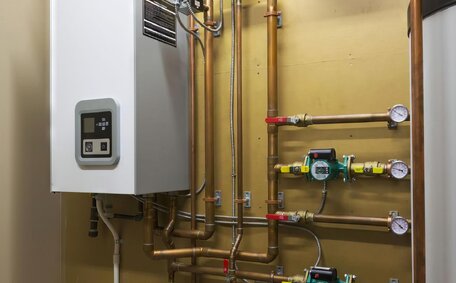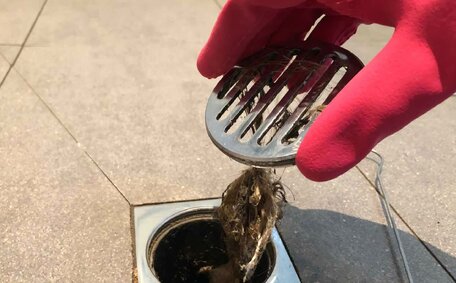Introduction to How Cooking Habits Can Clog Drains
From baking and frying to washing dishes, many daily kitchen activities can take a toll on drains over time. Cooking grease, oil, and food scraps washed down the kitchen sink are common culprits of clogged drains in homes and food processing kitchens alike.
With over 15 years of plumbing experience in Jannali, Sydney, Jannali Plumbing knows seemingly minor kitchen habits can severely impact your drainage system. We’ve seen it all - from slow bathroom sinks to completely blocked kitchen drains which often require only proper maintenance for improvement.
In this comprehensive guide, we’ll walk through typical cooking-related causes of clogs, signs of a blocked drain, and the best ways to resolve and prevent slow or backed-up your plumbing.
Grease and Oil Buildup
Grease and cooking oil are among the most frequent contributors to clogged drains. Animal-based fats, cooking oils, butter, dairy products and other greasy foods quickly solidify as they cool and coat the drain pipe. Over time, this grease buildup can lead to impeded water flow.
Even small amounts of oil or grease discarded down the sink initiate this unwanted clogging process. The oil continues clinging to the down kitchen pipes, accumulating with food particles from dirty dishwater, creating thick blockages down your pipes.
Pouring large amounts of hot grease down a drain can lead to the formation of fatbergs – substantial clumps of solidified fat. Sydney Water removed a colossal 2.5-tonne fatberg from Jannali’s sewers in 2022, a stark reminder of the importance of proper oil disposal.
We advocate for the safe disposal of oil and grease by:
- Pouring cooled oil or grease into an old container, sealing it and placing in the bin
- Mixing with an absorbent material like cat litter or coffee grounds before throwing out
- Composting it if you want to improve the nutrient content of your outdoor compost heap
How Grease Forms Clogs and Fatbergs
Grease causes issues as it turns soapy, reacting with drain water minerals in a process called saponification. As grease cools, the fatty acids within it react with calcium and magnesium ions, forming insoluble soapy compounds.
These waxy grease deposits cling to the inside walls of your drain channel, capturing food particles and other debris passing through. Over months or years, the grease continues accumulating into a thick layer that severely slows water flow.
Eventually, the grease builds up enough to completely block the pipe. This is known as a grease clog. If a larger mass accumulates from grease poured down multiple drains, it becomes a fatberg.
Fatbergs reach massive proportions, sometimes growing to the size of buses. To tackle these vast fatbergs, Sydney Water crews sometimes use grate covers for pipes with openings as long as 30 metres. These blockages can still cause sewage backups in the drainage system and environmental hazards from overflow discharge.
At a residential level, common grease clogs from day-to-day cooking are found in both kitchen sinks and floor drains. Slow drainage, gurgling sounds, bad smells, and water pooling around your kitchen sink indicate a grease clog.
By adopting grease disposal methods that prioritise cleanliness and using drain cleaners monthly, you can eliminate grease buildup and maintain free-flowing drains.
Proper Grease Disposal
To avoid clogged drains, it’s vital to properly dispose of fats, oils and grease instead of washing them down the sink.
To minimise grease disposal risks, we suggest the following best practices:
- Ensure grease is fully cooled before disposal; hot grease can harm pipes instead of keeping them clear.
- Pour cooled grease into an empty jar or container, seal it closed and throw in the bin, where it can easily be contained. Not down the drain.
- Mix grease with an absorbent material like cat litter or coffee grounds before tossing it out to minimise spills.
- Place Use a fine mesh strainer in your sink to intercept food scraps during dishwashing. Empty the captured debris into compost or bin—no need to go down the drain.
- Wipe down excess grease and oil from cookware using paper towels before washing. Throw used paper towels in the bin.
Simple kitchen habits can significantly curb grease buildup, thus preventing blocked drains.
Food Waste Causing Drain Blockages
Several types of such food waste commonly washed down drains can cause significant blockages over time. Here are some of the worst items that cause blocked drains:
Coffee Grounds
Coffee grounds, though seemingly harmless, stick to grease and oils, exacerbating pipe clogs. Upon wetting, they expand, making dispersion more challenging and forming dense masses that block water flow. Avoid getting grounds flushed down the drain or disposal.
Egg Shells
Egg shells, while seemingly harmless, can catch on pipes due to their jagged edges and accumulate with other food debris, becoming an obstruction. Compost egg shells instead of flushing them.
Pasta and Rice
Starchy pastas and rice easily swell up and clog the slot drain when wet. Noodles, spaghetti, rice and quinoa can twist together into obstructive plugs inside narrow pipes and strain your garbage disposal.
Before draining, let starchy water cool and avoid pouring substantial amounts down the drain. Utilise a fine colander to capture any leftover food particles.
For best drain health, refrain from purposely flushing non-liquid food items. Place food waste in the compost bin or garbage as needed. Contact Jannali Plumbing if your drain functions become noticeably sluggish after cooking or washing dishes.
Troubleshooting Slow Draining Sinks
Dealing with a slow draining kitchen or bathroom sink can be frustrating. Fortunately, there are several effective troubleshooting methods DIYers can try before calling a plumber.
Use Boiling Water
Pouring boiling water directly down the drain is one of the simplest methods to disperse light clogs. The heat liquefies grease, allowing water to rush down and dislodge debris effectively. Allow a few minutes for the boiling water down to work before running the tap as normal.
Try a Baking Soda and Vinegar Treatment
combination of baking soda vinegar down sink creates a fizzing chemical reaction that helps break up gunk. Pour 1⁄2 cup of baking soda followed by 1 cup of hot vinegar down the drain to create a fizzing action that helps dislodge blockages.
After the reaction, rinse with hot water to remove any residual buildup.
Use a Plunger
Plunging can also effectively dislodge clogs, similarly to boiling water. Fill the sink halfway with water, ensuring the drain opening is fully covered. Forcefully plunge up and down for 1-2 minutes to loosen the blockage, which can then allow you to pull out debris and drain as usual.
Snake the Drain
A stainless steel drain snake effectively reaches into pipes to remove stubborn gunk build-up. Feed the flexible steel cable down the drain while twisting to latch onto debris. You may need to snake a few times to fully clear the drain.
Gently extract the snake, removing the debris and simultaneously cleaning the pipe walls.
Avoid using harsh chemical drain cleaners as these can damage pipes. Implement grease disposal best practises in your kitchen to prevent future clogs.
Preventing Future Clogs
Prevent future drain clogs with good kitchen habits and regular maintenance for a clean kitchen. Here are some useful tips:
Proper Food Disposal
Avoid washing various wastes such as food scraps, grease, and starchy foods down the sink. Dispose of waste unsuitable for the sink in the trash or compost. Use drain strainers to protect sink drains when washing dishes.
Monthly Drain Cleaning
Monthly, combine 1⁄2 cup of baking soda with 1 cup of vinegar and pour this mixture down the drains. Let fizz for 5 minutes before rinsing to keep pipes clear.
Limit Grease in Drains
To protect your drainage system, wait until oils and fats cool and solidify before disposal. Mix with absorbents like coffee grounds if needed. Use paper towels to wipe greasy pots and pans.
Don’t Flush Wipes or Solids
Never flush anything other than toilet paper to avoid blocking the sewer. “Flushable” wipes and other items flushed down toilet can snag in pipes and cause issues.
Call Jannali Plumbing when there is suspicion of a persistent clog or backup needing professional attention to prevent major blockages down the line.






